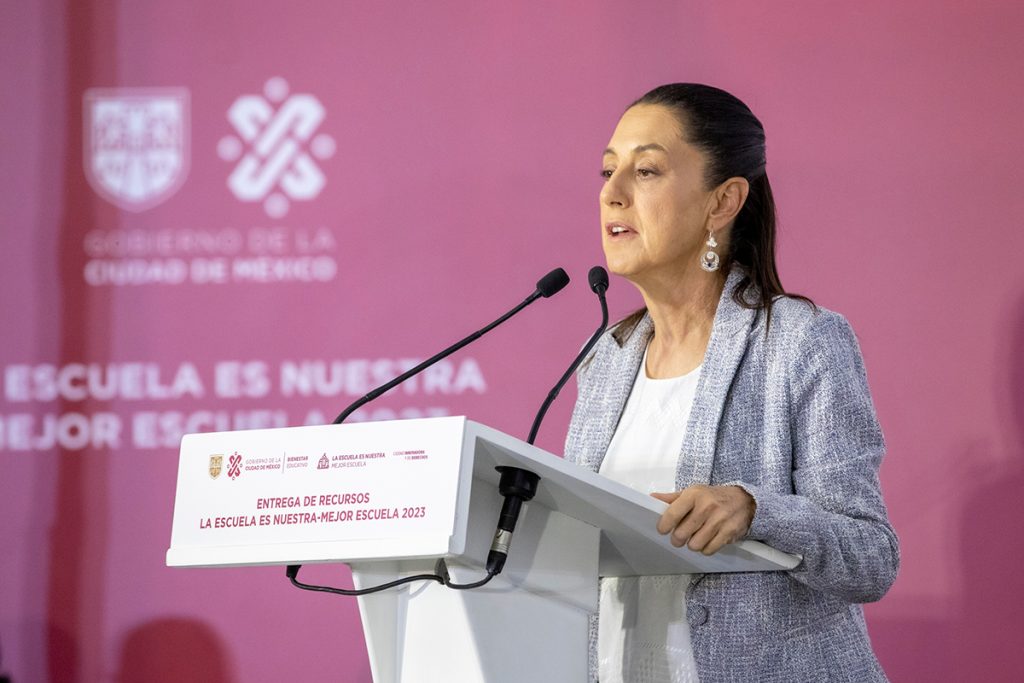The Catholic Church in Mexico has issued a call to action for President-elect Claudia Sheinbaum and other newly elected officials, urging them to make national reconciliation a top priority as they prepare to assume office. This appeal was made through an editorial published in “Desde la Fe,” the official publication of the Roman Catholic Archdiocese of Mexico, highlighting the Church’s concern over the country’s deepening political divisions.
With Sheinbaum set to be sworn in as Mexico’s first female president on October 1, the Catholic Church is advocating for a period of transition focused on building a unified nation. The editorial emphasizes the need for a reconciliation process that is not merely superficial but is rooted in solid foundations. According to the Church, this approach is essential for overcoming the conflicts that divide the country, strengthening national unity, and fostering an environment conducive to dialogue and mutual understanding.
The Church also called upon Mexican citizens to contribute to this collective effort, stating that the construction of a united country requires the combined efforts of all. The editorial suggests that reconciliation begins in small groups, such as families and workplaces, and can expand to create a movement that unites millions.
Mexico is currently experiencing significant political polarization, despite the overwhelming victory of Sheinbaum and the ruling Morena party in the June 2 elections. While outgoing President Andrés Manuel López Obrador has maintained high approval ratings throughout his term, there is widespread concern among Mexicans that both he and Sheinbaum could pose a threat to the nation’s democratic institutions. This concern is partly fueled by López Obrador’s controversial constitutional reform proposals, which Sheinbaum supports.
The Catholic Church’s editorial makes it clear that real reconciliation is not about achieving a fragile peace or making concessions to appease different groups. Instead, the Church advocates for a deeper understanding among Mexicans, one that involves coming to terms with past events that have caused pain and suffering. The Church stresses the importance of recognizing and embracing differences, with a view to renewing and growing together as a nation.
This call for unity from the Catholic Church aligns with Pope Francis’ recent appeal for prayers for political leaders, encouraging them to serve their people by promoting integral human development and focusing on the common good, particularly for the poor and those who have lost their jobs.
As Sheinbaum prepares to take office, there is considerable anticipation that her leadership style will differ from that of López Obrador. Known for his confrontational approach, especially during his morning press conferences where he often targets political opponents, López Obrador’s tactics have been criticized for contributing to the divisiveness in Mexico.
In contrast, Sheinbaum has pledged to govern for all Mexicans, signaling a potential shift towards a more inclusive and less combative administration. Her commitment to peace was evident earlier this year when she, along with the other presidential candidates, endorsed a “Commitment for Peace” document drafted by Mexico’s Roman Catholic leadership. However, Sheinbaum did express reservations about the Church’s assessment of the country’s security situation and some of the peace-building proposals included in the document.
As Mexico stands on the cusp of this significant political transition, the Catholic Church’s call for unity and reconciliation serves as a timely reminder of the challenges that lie ahead and the collective effort required to overcome them.


